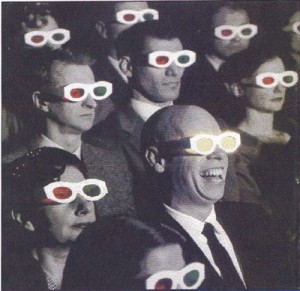
When was the last time you watched television without simultaneously interacting with a second, third, or fourth screen? A smartphone, tablet, or Xbox? Without tweeting, IMing, or posting to Facebook?
A plethora of devices, as well as social media are changing the way we watch, particularly when viewing is tied to an event – last night’s vice presidential debates, for example. Viewing is likely more often than not a multiscreen experience: there’s the televisions (or a live video screen), as well as additional screens (tablet, phone) and activity (reading, tweeting, commenting).
Do all these screens, and all this activity, fragment attention? Sure. But there are growing indications that multiscreen experiences fragment attention within the context of the debate or program in question. Early research indicates this multiscreen experience is additive rather than reductive (as a digital video executive put it to me yesterday). More screens and more channels intensify rather than diminish attention and concentration on the program in question.
Or am I wrong about this? Weigh in, please, in the comment section.
